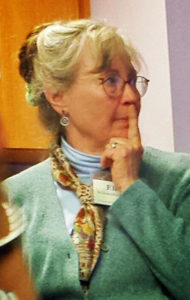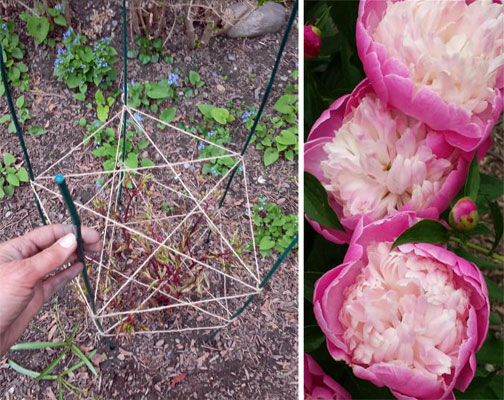
Beautiful historic gardens inspired us in the past. What inspires us to-day? And what does it mean for our backyards and our sense of self? Gardening teaches us to notice, to be patient, but the biggest lessons come when we embrace a new reason to care about what we plant and how we maintain our gardens. Ellen Schoenfeld-Beeks explains at her “Why We Need a Garden Revolution” talk at the Unitarian Church of Sharon on May 3rd. Ellen maintains an extensive mostly-native plant garden at her Sharon home, and also oversees the plantings and Memorial Garden at the church.
If you care about your chickadees, what does this range of numbers mean: 350 to 570? My environmental and social justice pal Ellen Schoenfeld-Beeks let us know at her “Why We Need a Garden Revolution” talk at the Unitarian Church of Sharon, MA on May 3rd. The answer is, 350 to 570 is the number of caterpillars one pair of chickadees needs every day to nurture their chicks from hatching to fledging. That’s just one pair of one kind of bird! Ellen inspired us to think and be mindful about every plant and practice in our gardens, and whether and how each helps or harms the natural systems that support all living things.
Ellen, who manages the church’s extensive gardens, showed examples of native plants at the church’s gardens and at her own home through the seasons, and how they support or harm our native pollinators, wildlife and local ecosystem at large. She even talked about plants she introduced to her gardens on purpose, only to find out years later that they were actually exotic invasive look-alikes of native plants. For example, she thought she was planting yellow marsh marigolds (Caltha palustris), but they turned out to be fig buttercups (Ranunculus ficaria, or, Ficaria verna), which are on the MA list of plants that are prohibited from sale.
After about three years they had spread like a spring carpet of yellow, in part because they aggressively reproduce by three different mechanisms. Once she realized her error, Ellen took responsibility and removed them by hand, an intensive but organic gardening practice. It took three seasons to bring their numbers to a reasonably manageable level.
Ellen also reminded us that one of the Unitarian Universalist Church’s guiding principles is respect for the interdependent web of all existence of which we are a part. She urged us to think carefully and learn about the impact of each of our plantings, as every plant in our landscapes matters, and your landscape supports, or doesn’t, those chickadees who need all those caterpillars every day to raise their young.
The design of her home garden, also in Sharon, features primarily native plants with mowed and gravel paths that sweep around her layered ornamental planting beds and stone walls, leaving the visitor wondering with curiosity what lies just past the next curve. Each of her beds have themed names, such as Mountain Laurel Hill, the Meadow and Old Rose Garden. Some of her favorite native plants are mountain laurel, Kalmia latifolia – obviously – with an area named just for them; apothecary rose, Rosa gallica, which though not a native has been cultivated by people since the MIddle Ages; and various goldenrods, which support at least 115 species of butterflies and moths.

